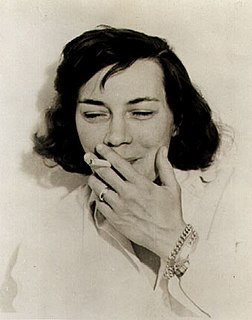A Quote by Michio Kaku
What would happen if history could be rewritten as casually as erasing a blackboard? Our past would be like the shifting sands at the seashore, constantly blown this way or that by the slightest breeze. History would be constantly changing every time someone spun the dial of a time machine and blundered his or her way into the past. History, as we know it, would be impossible. It would cease to exist.
Related Quotes
If we could travel into the past, it's mind-boggling what would be possible. For one thing, history would become an experimental science, which it certainly isn't today. The possible insights into our own past and nature and origins would be dazzling. For another, we would be facing the deep paradoxes of interfering with the scheme of causality that has led to our own time and ourselves. I have no idea whether it's possible, but it's certainly worth exploring.
History, when rightly written, is but a record of providence; and he who would read history rightly, must read it with his eyes constantly fixed on the hand of God. This statement of a nineteenth-century historian sums up the responsibility of the Christian teacher of history, for he who would teach history or any subject matter rightly, must teach it with his eyes constantly fixed on the hand of God.
They were not friends. They didn't know each other. It struck Tom like a horrible truth, true for all time, true for the people he had known in the past and for those he would know in the future: each had stood and would stand before him, and he would know time and time again that he would never know them, and the worst was that there would always be the illusion, for a time, that he did know them, and that he and they were completely in harmony and alike. For an instant the wordless shock of his realization seemed more than he could bear.
If every husband and every wife would constantly do whatever might be possible to ensure the comfort and happiness of his or her companion, there would be very little, if any, divorce. Argument would never be heard. Accusations would never be leveled. Angry explosions would not occur. Rather, love and concern would replace abuse and meanness.
Human behaviour reveals uniformities which constitute natural laws. If these uniformities did not exist, then there would be neither social science nor political economy, and even the study of history would largely be useless. In effect, if the future actions of men having nothing in common with their past actions, our knowledge of them, although possibly satisfying our curiosity by way of an interesting story, would be entirely useless to us as a guide in life.
Holly smiled weakly. Gerry would know exactly how she was feeling, he would know exactly what to say and he would know exactly what to do. He would give her one of his famous hugs and all her problems would melt away. She grabbed a pillow from her bed and hugged it tight. She couldn't remember the last time she hugged someone, really hugged someone. And the depressing thing was that she couldn't imagine ever embracing anyone the same way again.
And sometimes it happened, for a time. That kind of love comes and goes and is hard to remember afterwards, like pain. You would look at the man one day and you would think, I loved you, and the tense would be past, and you would be filled with a sense of wonder, because it was such an amazing and precarious and dumb thing to have done; and you would know too why your friends have been evasive about it, at the time.
If I were a younger man, I would write a history of human stupidity; and I would climb to the top of Mount McCabe and lie down on my back with my history for a pillow; and I would take from the ground some of the blue-white poison that makes statues of men; and I would make a statue of myself, lying on my back, grinning horribly, and thumbing my nose at You Know Who.
I feel history is more of a story than a lesson. I know this idea of presentism: this idea of constantly evoking the past to justify the present moment. A lot of people will tell you, "history is how we got here." And learning from the lessons of history. But that's imperfect. If you learn from history you can do things for all the wrong reasons.
Clary glanced past him and asked, "Where's Magnus?" "He said it would be better if he didn't come. Apparently he and the Seelie Queen have some kind of history." Isabelle raised her eyebrows. "Not that kind of history," said Alec irritably. "Some kind of feud. Though," he added, half under his breath, "the way he got around before me, I woudn't be surprised.
Families of privilege and money would have harps in their parlors, and their cultured daughters would learn to play. It's got such a strange history. But that wasn't the context that I learned it in, so the inherent friction between that history and the more humanist folk-y history wasn't in my conscience at all.





































